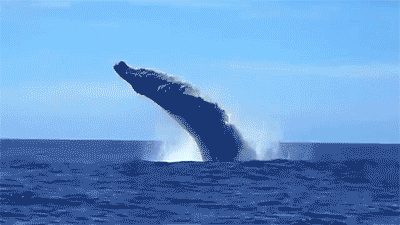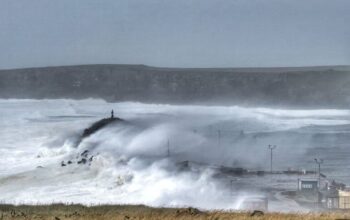And lived to tell this “Whale of a story”
‘I was completely inside’: Lobster diver swallowed by humpback whale off Provincetown

The following written contact from Doug Fraser
At a little before 8 a.m. Friday, veteran lobster diver Michael Packard entered the water for his second dive of the day.
His vessel, the “Ja’n J,” was off Herring Cove Beach and surrounded by a fleet of boats catching striped bass. The water temperature was a balmy 60 degrees and the visibility about 20 feet.
Licensed commercial lobster divers literally pluck lobsters off the sandy bottom, and as Packard, 56, dove down Friday morning, he saw schools of sand lances and stripers swimming by. The ocean food chain was in full evidence, but about 10 feet from the bottom Packard suddenly knew what it truly felt like to be part of that chain.
In something truly biblical, Packard was swallowed whole by a humpback whale.
“All of a sudden, I felt this huge shove and the next thing I knew it was completely black,” Packard recalled Friday afternoon following his release from Cape Cod Hospital in Hyannis. “I could sense I was moving, and I could feel the whale squeezing with the muscles in his mouth.”
Initially, Packard thought he was inside a great white shark, but he couldn’t feel any teeth and he hadn’t suffered any obvious wounds. It quickly dawned on him that he had been swallowed by a whale.
“I was completely inside; it was completely black,” Packard said. “I thought to myself, ‘there’s no way I’m getting out of here. I’m done, I’m dead.’ All I could think of was my boys — they’re 12 and 15 years old.”
A man was swallowed by a whale: How do we know it is true?
“I was completely inside; it was completely black,” Packard said. “I thought to myself, ‘there’s no way I’m getting out of here. I’m done, I’m dead.’ All I could think of was my boys — they’re 12 and 15 years old.”
Outfitted with scuba gear, he struggled and the whale began shaking its head so that Packard could tell he didn’t like it. He estimated he was in the whale for 30 to 40 seconds before the whale finally surfaced.

“I saw light, and he started throwing his head side to side, and the next thing I knew I was outside (in the water),” said Packard, who lives in Wellfleet.
Packard’s sister, Cynthia Packard, spoke with crewman Josiah Mayo, who relayed some of the details to her. Packard said Mayo saw the whale burst to the surface, and that he initially thought it was a great white shark.
“There was all this action at the top of the water,” Packard said Mayo told her. Then the whale flung her brother back into the sea. Mayo picked him up, called by radio to shore and sped back to the Provincetown pier. A Provincetown Fire Department ambulance took him to Cape Cod Hospital.
“Thank God, it wasn’t a white shark. He sees them all the time out there,” said Cynthia Packard. “He must have thought he was done.”
How do humpback whales eat?
“Based on what was described, this would have to be a mistake and an accident on the part of the humpback,” said Jooke Robbins, director of Humpback Whale Studies at the Center for Coastal Studies in Provincetown. Humpbacks are not aggressive animals, particularly toward humans, she said.
The humpback was described by Mayo as being medium-sized, Michael Packard said, and Robbins suspects it was a juvenile feeding on sand lance. When a humpback opens its mouth to feed, it billows out like a parachute, blocking the animal’s forward vision, which is why so many become entangled in fishing gear in their mouth and jaws, said Robbins.
Even so, incidents of feeding humpbacks injuring swimmers and divers, especially instances of swallowing them, are so exceedingly rare as to be nonexistent, Robbins said. The esophagus on nontoothed whales is too small to actually swallow a human but they could wrap their mouth around a large object and then spit it out. Robbins said that, unlike toothed whales such as Orcas, baleen whales that filter out small schooling fish do not explore or cause injuries with their mouths. They generally use their tail. Read more from Cape Cod Times





